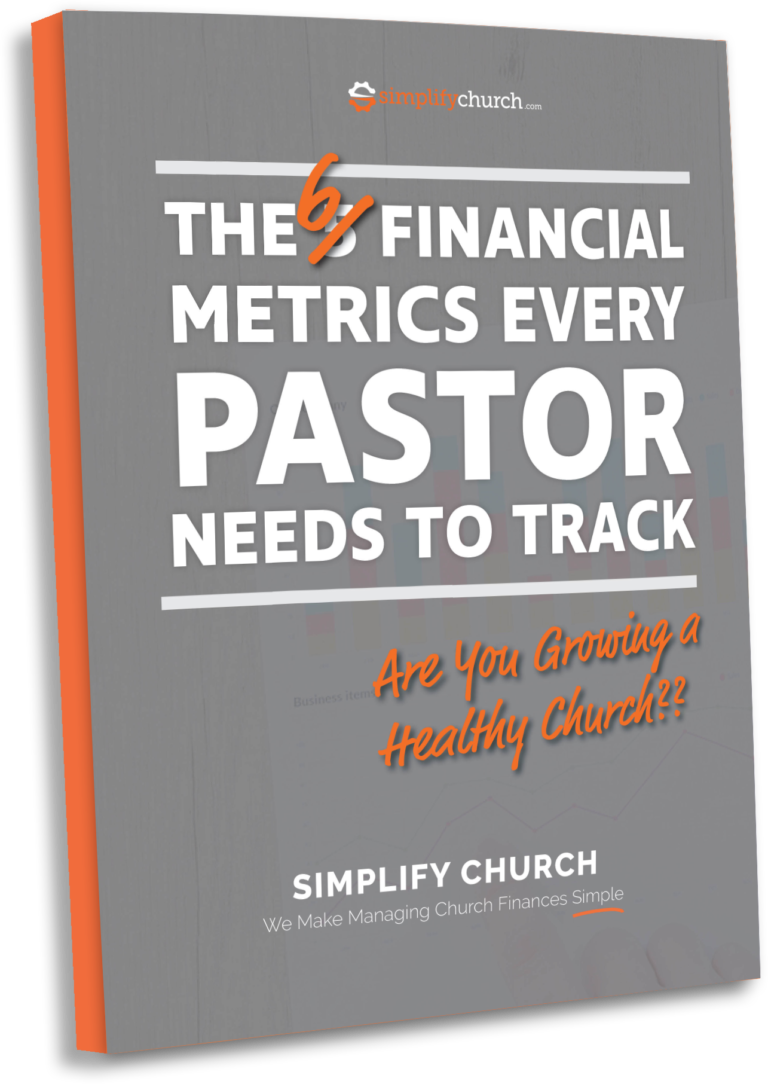Small Churches With Big Vision Can Have Big Impact.
But it takes more than one person to bring that vision to life.
Perhaps you are a visionary pastor. Your greatest desire is to see more lives changed by the power of the gospel. You went into ministry because you had a God-given calling and a passion for people. You have a vision to see God use your church to accomplish His mission. But there is only so much you can do alone.
Too many pastors and church planters try to save money by trying to do everything themselves. But it’s too much. And it’s not the most effective way to accomplish the vision. And in the end it can end up costing you more time, money, and diminishing your impact.
Big impact can only happen when a strong team is in place to execute the vision. And the challenge for pastors is figuring out how to build that team.
Should Your Church Staff be Made Up of Volunteers or Employees?
Perhaps the scenario we see most often in small and growing churches is the all-volunteer church staff. If you are in the early stages of planting a church, you simply may not have the funds to hire any help. In this case, you must rely on a team of volunteers to make things happen. This is sustainable for a season.
But eventually there will come a point where the current level of growth, effort and impact of your church will not sustainable through the efforts of volunteers alone. Either you, and/or your volunteer team will burn out. And the last thing your church needs is for you to get burned out and quit the ministry. We’ve seen this happen way too many times.
Before you ever reach this point, you and your leadership team need to think hard about what type of church you want to be and the long-term investment that will be required to accomplish the vision of the church. You will need to determine what kind of church you want to be, and which leadership structure is right for your church.
But before we dig into the details of how to build your church staff, we need to address a common misnomer.
Cheap Doesn’t Equal Stewardship
It can be tempting to continue to rely on a team of volunteers to execute the mission of the church. After all, this feels familiar and it is obviously the cheapest option. Isn’t cheap the same thing as good stewardship?
Absolutely not. I’m not sure where these two ideas got intertwined. Just because something is cheap, doesn’t guarantee that it is the most cost-effective, valuable or the right choice for long-term sustainability and health. Cheap doesn’t always equal good stewardship.
Building an All-Volunteer Staff
While volunteers are a vital part of the functioning of every church organization, there are some challenges that come with relying solely on volunteers to accomplish key ministry tasks:
- Your volunteer may be willing, but not in the right position. I can’t tell you how many times we’ve heard stories about volunteers who were very willing to serve in a role, yet they were not suited or qualified for the given role. What’s more, the under-qualified individual may prevent the right individual from serving where they are most gifted.
This can lead to an uncomfortable situation if the volunteer needs to be removed from the role. Often pastors will avoid this confrontation and just work around the situation. This creates more work for everyone involved and is not healthy for the entire organization.
- Volunteer responsibilities need to be managed differently. The Fair Labor Standards Act (FLSA) has specific guidelines regarding the differences between employees and volunteers. While the guidelines for non-profit organizations can be interpreted broadly, this is something to keep in mind. Essentially the more say you have in what and how a person performs specific tasks, the more likely they are to be seen as an employee in the eyes of the law.
- You are relying on their time commitment. Often, the volunteer’s schedule will dictate when things can get done. It is easy for the needs of the church to get put on the back burner. Things that are critical to ministry growth and success might not get done.
The biggest challenge to the all-volunteer staff approach is that the impact potential of the church gets limited. While we have seen a few churches sustain health and growth with only a team of volunteers, most churches eventually plateau (or begin to decline) unless they choose to invest in church staff.
Is it Time to Hire or Outsource?
A great first step to increasing the impact of your church is to hire part-time help or outsource time-consuming tasks.
Think through how you currently spend the hours in your week. According to the Harvard Business Review, you can free up to 20% of your day by either eliminating or delegating unimportant and time-consuming tasks. What kind of impact could your church have when you are able to focus more on the mission and less on the administrative details?
Some of the most common tasks to outsource include:
- General Administrative Tasks
- Email Management
- Visitor Follow Up
- Meeting Coordination
- Financial Management/Accounting
What Happens Next?
We can’t tell you specifically what role you should hire for first and what you should prioritize because this is unique to each church. It depends on the specific giftings and weaknesses of the lead pastor, along with the vision and goals of the church. But here are some of the most common church staff roles that help churches make big impact:
- Associate Pastor and/or Executive Pastor
- Children’s Minister
- Student Pastor
- Administrative Assistant
- Groups/Equipping Coordinator
- Worship Pastor
- Missions/Outreach Coordinator
We recommend sitting down with your core leadership team to dream together about the vision of your church and then sketch out a strategic plan and timelines to bring on paid support to help accomplish this vision. This will not happen overnight, but through setting goals, making informed decisions based on accurate numbers, prayerfully pursuing the vision God has given your church, and building a healthy leadership team, you will move towards big impact much more quickly.
Are you a small church who wants to have big impact? Give us a call so we can chat about how we can partner with you to grow your reach and impact.





